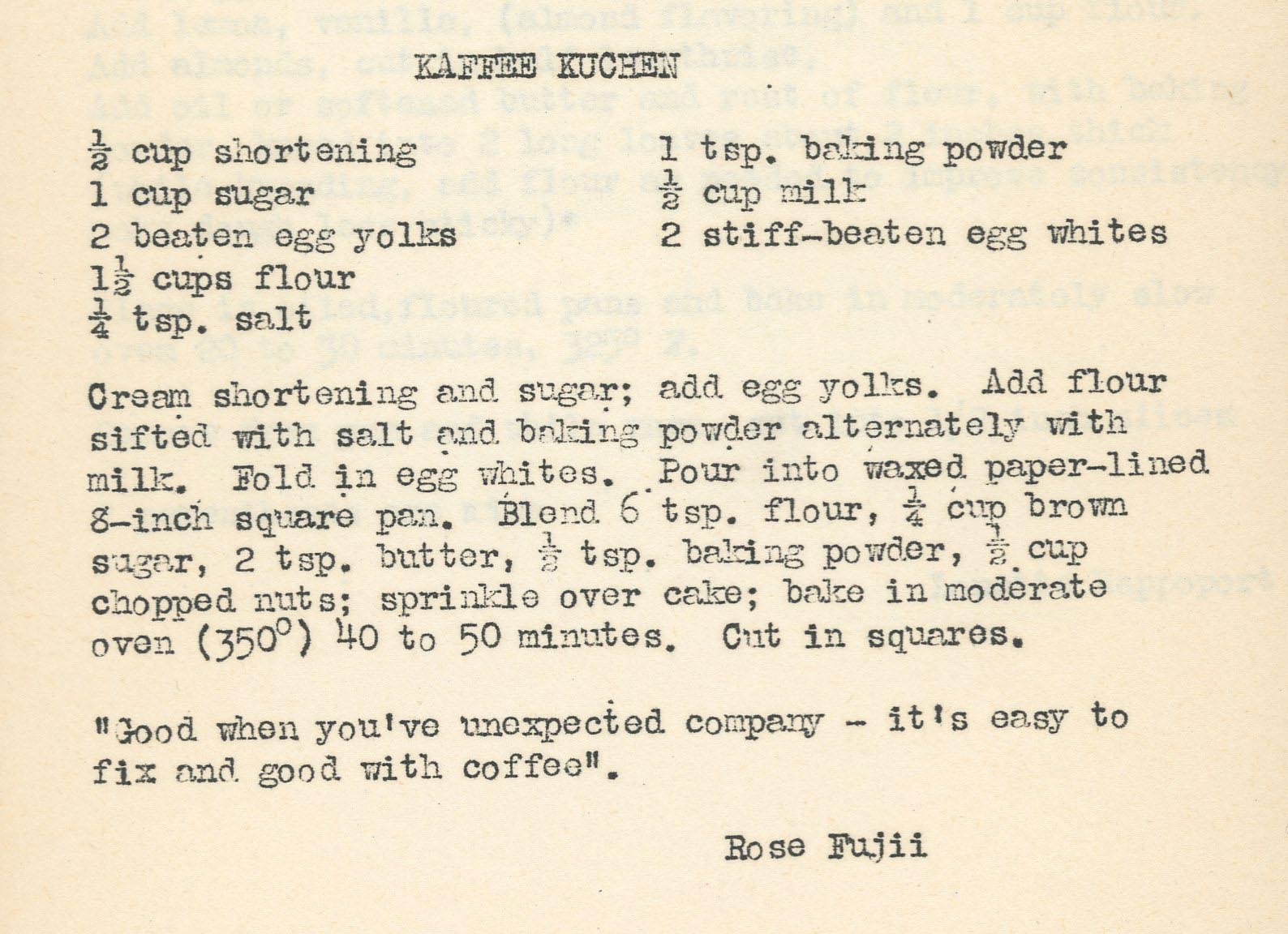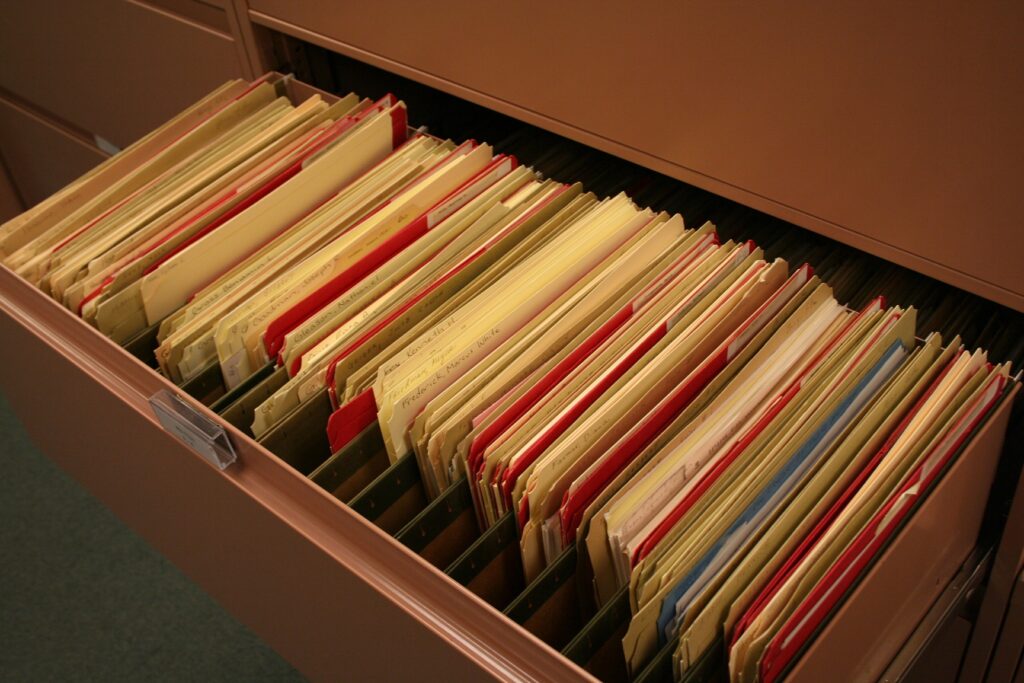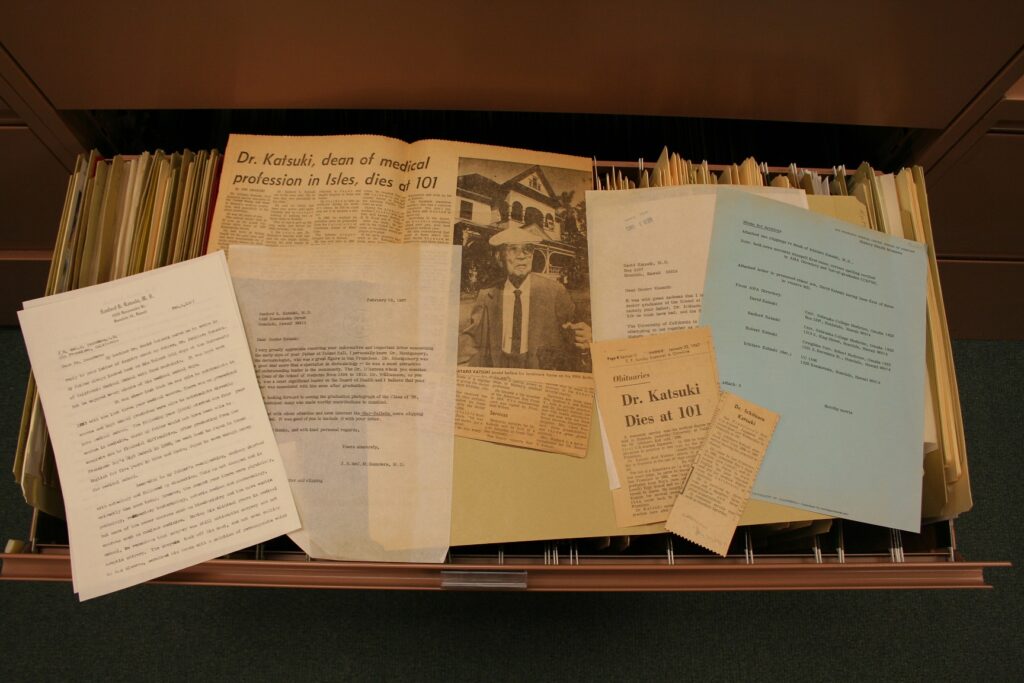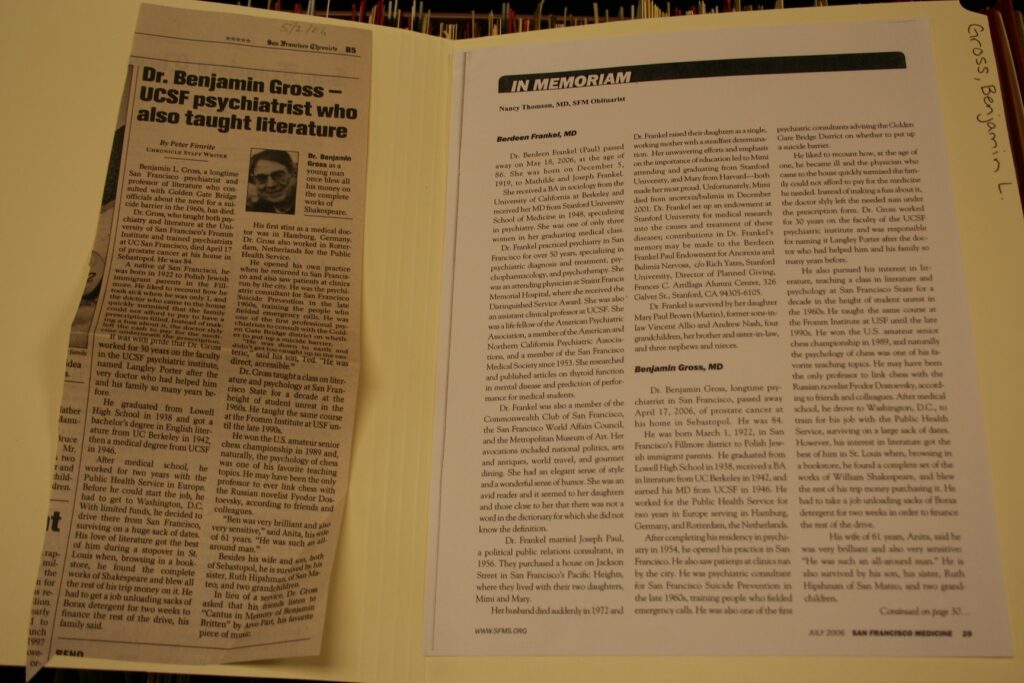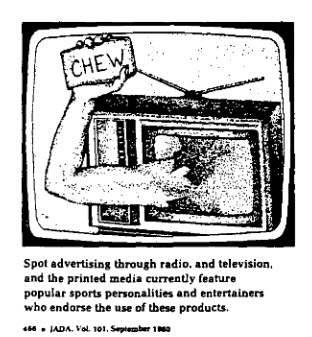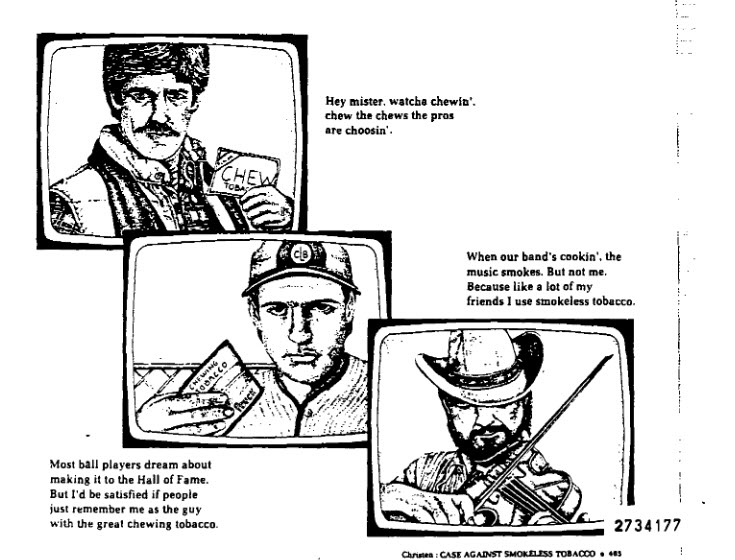The UCSF Archives & Special Collections started building the AIDS History collection almost 30 years ago, in 1987. Early on, the archivists decided to create a collection development policy that would allow researchers to examine diverse aspects of the AIDS epidemic, including political, social, economic, cultural, and biomedical aspects.
The AIDS History Project holdings at UCSF currently include 39 collections; all of them are cataloged and 32 are processed and have detailed inventories. The recently-acquired seven new collections, comprising a total of 373 linear feet, are not yet processed, and the archives are working to secure funding to arrange and describe them. In the past year we added the following collections to our holdings:
John S. Greenspan papers
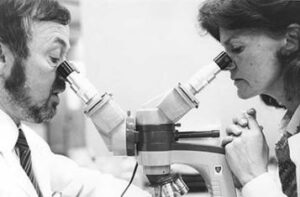
—John Greenspan, BDS, PhD, and Deborah Greenspan, DSc, BDS, ca. 1984
A faculty member at UCSF since 1976, John S. Greenspan is a Distinguished Professor Emeritus of Oral Pathology in the Department of Orofacial Sciences. He is a Director-Emeritus of the AIDS Research Institute, which he led from 2003 to 2012, and is the founding Director of the UCSF Oral AIDS Center, as well as UCSF AIDS Specimen Bank. He was the Director of the UCSF AIDS Clinical Research Center/California AIDS Research Center from 1992 to 2005.
His research interests include the global health aspects of AIDS. His own work is rooted in studies of oral aspects of AIDS and the role of viruses in oral epithelial and salivary gland lesions. He and his colleagues have made major contributions to HIV research and care, notably the discovery of the lesion hairy leukoplakia, its association with EBV, and the significance of this and other oral lesions in the natural history of HIV diseases. His papers include correspondence, presentations, lectures, research data and notes, teaching materials, records related to administration of the AIDS Research Institute and AIDS Specimen Bank.
Don Francis papers, MSS 2015-01
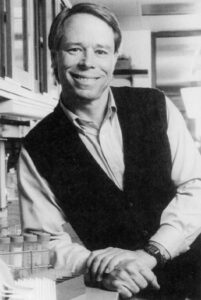
Donald P. Francis
As an infectious disease trained pediatrician and epidemiologist, Dr. Francis has over 30 years of experience in epidemic control and vaccines. He spent 21 years working for the U.S. Centers for Disease Control (CDC) focusing on vaccine-preventable diseases. Dr. Francis has worked on HIV/AIDS since its emergence in 1981. He initially directed the AIDS laboratory at the CDC and worked closely with the Institut Pasteur to identify the causative virus. His early efforts to call attention to the threat of AIDS and warn of the inadequacy of the public health response were chronicled in the book by Randy Shilts And the Band Played On. In 1992, he joined Genentech to spend full time developing vaccines, while he also helped found what became the International AIDS Vaccine Initiative (IAVI). Dr. Francis co-founded VaxGen, which completed the world’s first Phase III trials of two candidate HIV vaccines in 2003. His papers include correspondence, news-clippings, research data and notes, conference and presentation materials, and ephemera.
AIDS Treatment News, MSS 94–28 – 2015 addition
This recent donation of more than 68 linear feet complements the ATN records that were transferred to the archives in 1994.
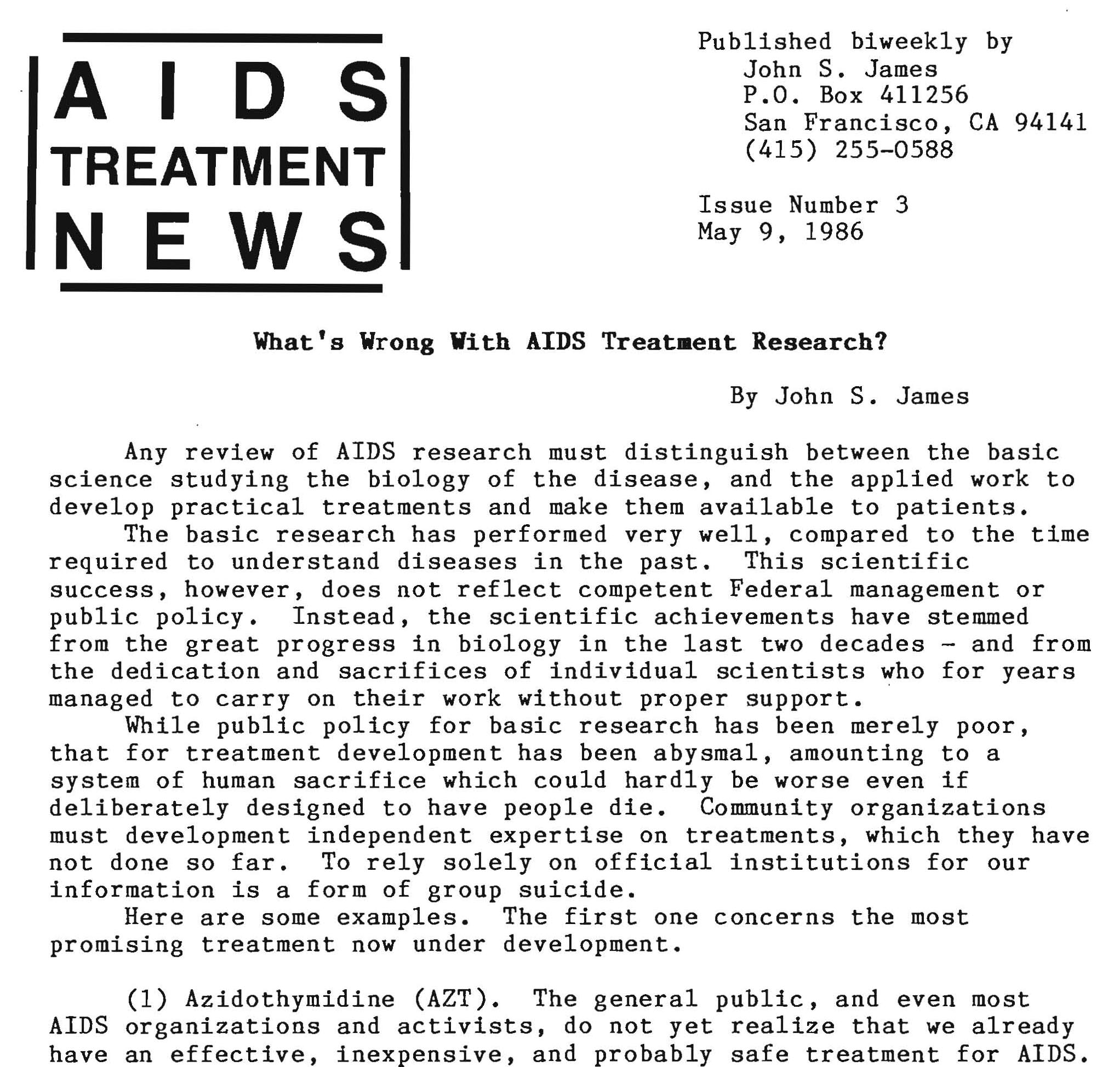
Title page of AIDS Treatment News, Issue #3, May 9, 1986
AIDS Treatment News (ATN) was a biweekly newsletter that reported on both orthodox and experimental treatments of AIDS-related conditions. AIDS Treatment News was frequently the first publication to investigate and write about potential new treatments, clinical trials, and the politics involved in government sanctioned and alternative therapeutics. It was a primary resource for community-based organizations and government agencies, and was also read by many physicians and scientists involved in AIDS research and care. These records include correspondence, telephone logs, presentations, minutes of meetings, photographs, and news clippings.
The mission of the UCSF AHP has broadened from the initial goal of identifying, surveying and describing at-risk records of educational and professional institutions, non-profit service organizations and ad hoc community-based organizations that emerged in San Francisco in the early years of AIDS epidemic.
The multifaceted and multidisciplinary approach to collection development has led UCSF Archives & Special Collections to create a complex and comprehensive AIDS history research collection that documents not only medical aspects of the epidemic, but also changes in cultural values and shifts in policy and social response. UCSF Archives is continuing to build an inclusive AIDS history research collection where patients, activists, researchers, clinicians, journalists, and community based organizations’ perspectives will be preserved and will allow current and future generations of researchers to examine and learn from these materials.
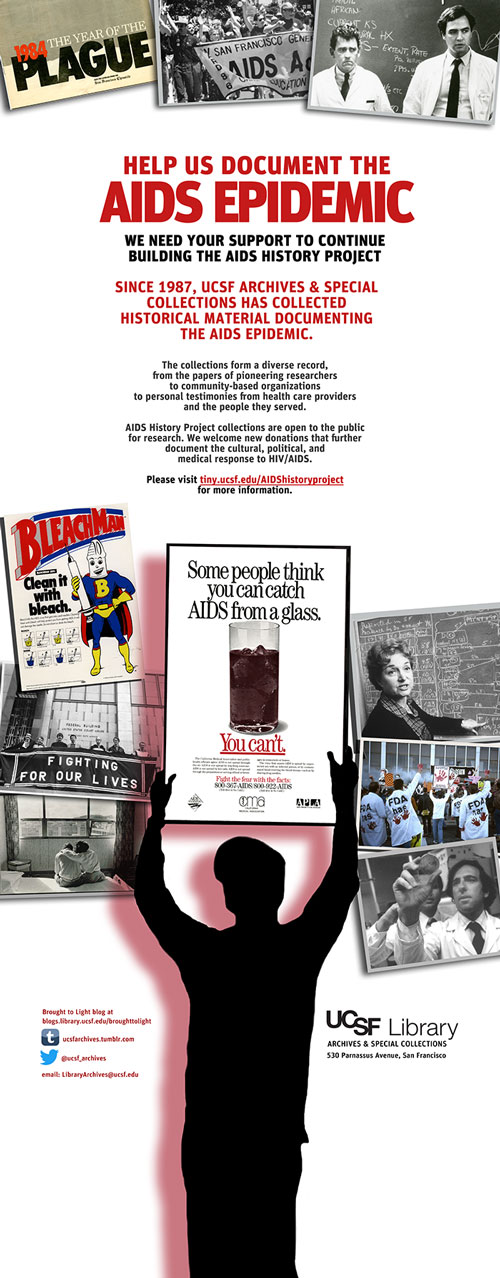
UCSF Archives poster (designed by Mark McGowan)
The need to preserve and provide access to these materials was reinforced by two recent initiatives:
Dan Royles posted a call to action in the October issue of the AHA’s Perspectives on History to teach AIDS history to undergraduates: https://www.historians.org/publications-and-directories/perspectives-on-history/october-2016/silence-death-its-time-to-teach-aids-history
The Cold Spring Harbor Laboratory organized a meeting, “HIV/AIDS Research: Its History & Future” that brought together more than 125 pioneering scientists and clinicians who discussed the key scientific, epidemiological, and clinical discoveries that created this field and stressed the importance of preserving the past to find ways to address and control epidemics in the future: http://www.sciencemag.org/news/2016/10/gathering-hivaids-pioneers-raw-memories-mix-current-conflicts
The archivists are collaborating with the UCSF AIDS Research Institute on collection development and public outreach efforts and today, to commemorate the World AIDS Day, we will be presenting two posters at the amfAR HIV Cure Summit at Mission Bay campus.
The UCSF Archives is open to anyone regardless of institutional affiliation, to make an appointment to see these materials, please use this contact form.
